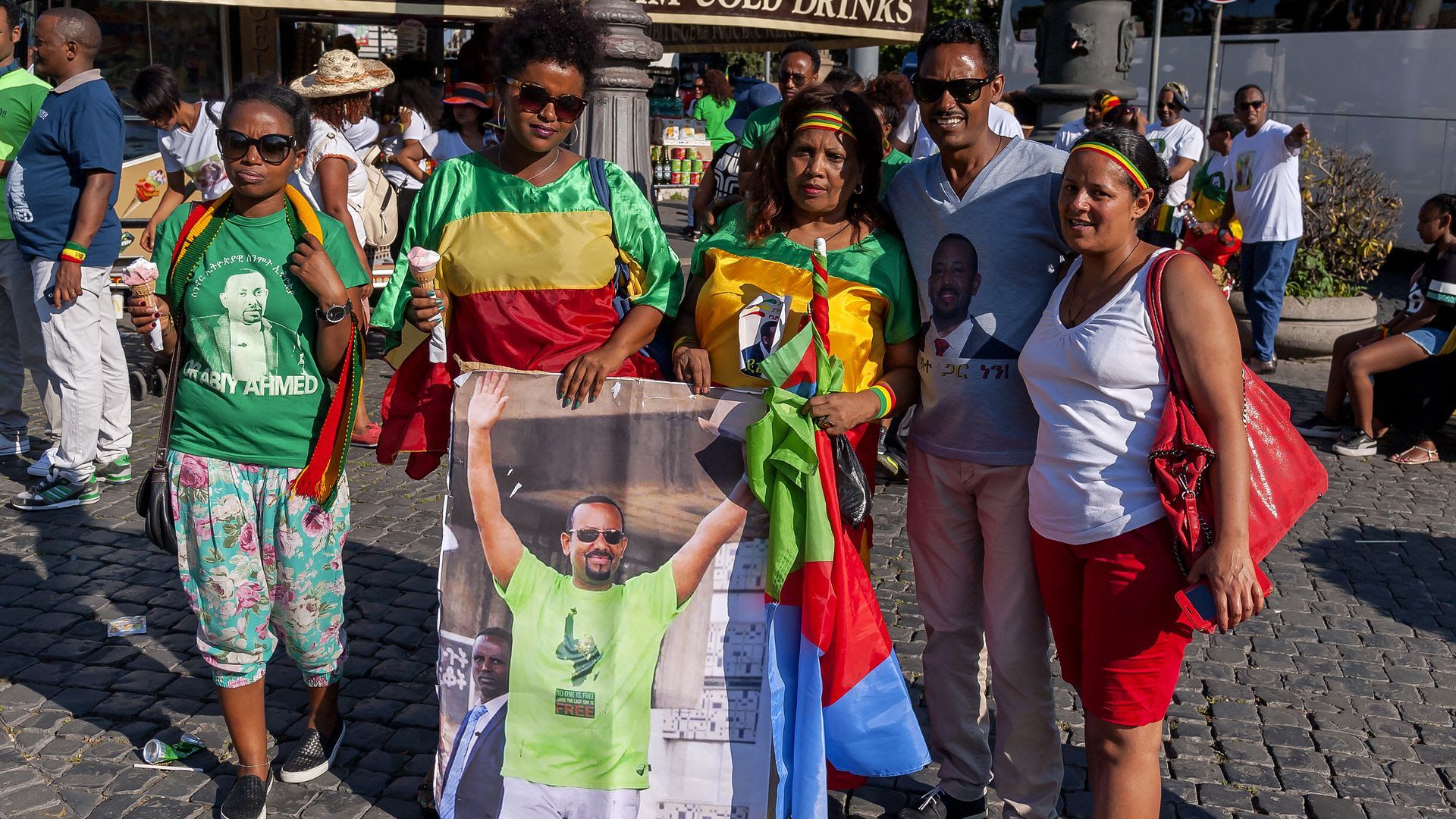Jul 9, 2018
Ethiopia and Eritrea declare end to cold war
Add Axios as your preferred source to
see more of our stories on Google.

Ethiopians and Eritreans gathered in Rome to celebrate the news, and at least one brought along a picture of Ethiopian PM Abiy Ahmed. Photo: Stefano Montesi/Corbis via Getty Images
